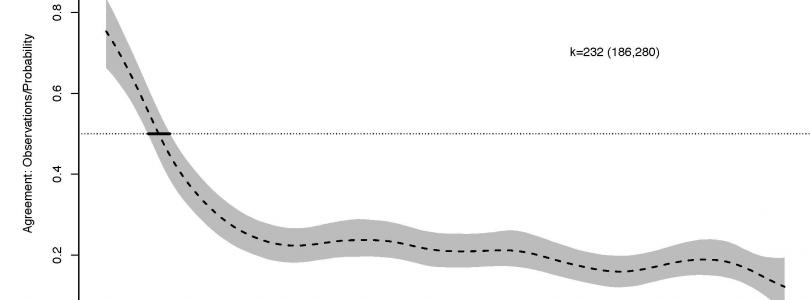Blog
This will take you to the Stats Central Blog.

This will take you to the Stats Central Blog.
- Use this checklist to work out which parts of the guide are relevant to your application.
The UNSW Procedure for Authorship and for Resolving Disputes Between Authors describes policies on authorship at UNSW. Section 2.1.1 states:
The minimum requirement for authorship is that an author must have had a substantial intellectual contribution to a paper or research output, where any of the following conditions are met:
a) conception and design; and/or b) analysis and interpretation of data; and/or c) drafting the article or revising it critically so as to contribute to the interpretation.
Researchers planning to write a paper, who have benefited from a statistical consultation, should consider whether the statistician has met one of the above requirements. Examples of ways they could meet these criteria include at least one of the following:
As for any collaborator, whether or not the statistician was paid for their services should not be a consideration when assessing authorship, nor should the length of time they dedicated to the problem. The key point is whether there was a substantial intellectual contribution to design, analysis or interpretation. Providing feedback on pre-existing plans, or providing general suggestions without significant material support, would typically not warrant co-authorship, but should be acknowledged in publications (pending approval from the statistician).
The Vancouver protocol on co-authorship further states that a co-author should satisfy the following criteria:
Thus, in cases where co-authorship is warranted, the consultant (and all co-authors) should be consulted in the write-up process, and should give final approval prior to submission.
If you have any questions or feedback about this policy, feel free to discuss with your consultant or the Stats Central Director (david.warton@unsw.edu.au)
Related resources
Stats Central:
Biological Sciences South Building (E26), Level 2 Kensington UNSW Sydney NSW 2033
Phone: +61 (2) 9385 8220
Email: stats.central@unsw.edu.au
Location Maps - Ref E26

Authorised by the Executive Director of Mark Wainwright Analytical Centre, UNSW CRICOS Provider Code 00098G, ABN 57 195 873 179
Mark Wainwright Analytical Centre, UNSW, Sydney, NSW, 2052, Australia | Email: analytical@unsw.edu.au
